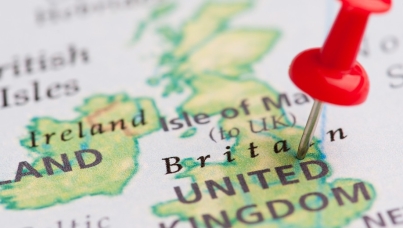Sexual orientation and attitudes to LGBTQ+ in Britain
New research from Ipsos shows that the majority of the British public believe LGBTQ+ communities face discrimination in Britain today, but are more split on whether there is further progress needed on LGBTQ+ rights. This comes despite evidence that Britain is more sexually diverse than we might think, particularly among the younger generations, who are more likely to identify their sexuality on a spectrum.
- The majority of Britons (60%) believe that people from LGBTQ+ communities face at least a fair amount of discrimination (16% say they face a great deal) This differs by age, with three quarters of adult Gen Z (73%) and Millennials (74%) saying LGBTQ+ communities face a great deal or fair amount of discrimination, compared to just over half of Baby Boomers (54%) and Gen X (55%).
- Around half of Britons are supportive of LGBT-inclusive sex education in schools, although around one in five are against. Over half (55%) of Britons support the teaching of LGBT sex and relationships in secondary schools as part of RSE (Relationship and Sex Education), including 29% who strongly support this. Only one in five (20%) oppose an LGBT-inclusive curriculum. Another half (50%) support the teaching of LGBT relationships as part of RE (Relationship Education) in primary schools, whereas a quarter (24%) do not.
- When asked about sex education in general, over half (56%) think schools should start teaching children sex education at age 11 or over. A quarter (27%) think schools should introduce sex education at ages 8-10 and one in ten (9%) think it should start at ages 5-7.
- Yet opinion is more split regarding the progression of LGBTQ+ rights in general. A quarter (25%) believe LGBTQ+ rights gone have as far as they should and one in five (18%) think LGBTQ+ rights have gone too far in Britain (another quarter say they don’t know). Only a quarter say there is further distance to be travelled – 27% say that LGBTQ+ rights have not gone far enough. However, this rises to nearly half among Gen Z (47%), compared to 14% of Baby Boomers, 27% of Gen X and 38% of Millennials.
- In terms of sexual orientation, labels don’t capture the full story. Although almost nine in ten Britons (86%) would identify themselves as heterosexual , only three quarters (74%) say they are exclusively attracted to the opposite sex. One in ten (11%) say they are only or mostly attracted to the same sex and 4% are equally attracted to both sexes.
- Younger people are more sexually diverse. Just three quarters (76%) of Gen Z identify as heterosexual, and only about half of (54%) say they are exclusively attracted to the opposite sex. One in ten (11%) say they are only or mostly attracted to the same sex and 15% are equally attracted to both sexes. However, this diversity decreases significantly by age: two thirds (66%) of Millennials, three-quarters (76%) of Gen X and eight in ten (81%) of Baby Boomers say they are solely attracted to the opposite sex.
- Younger people are also more familiar with different types of sexuality, such as pansexuality, omnisexuality and asexuality. One in five (19%) of Britons know at least a fair amount about pansexuality (attraction regardless of someone’s sex, gender or sexuality). However, this increases to half (48%) of Gen Z, compared to just 5% of Baby Boomers.
- About a quarter (27%) of Britons are familiar with asexuality (experiencing no attraction to others of any gender). Three in five Gen Z (58%) know a great deal or a fair amount about asexuality, compared to just 14% of Baby Boomers.
- Less than one in ten Britons (7%) know a fair amount about omnisexuality (attraction which is not limited to people of a particular gender, sex or sexual orientation) – but nearly one in five in Gen Z (17%) know a great deal or fair amount about it.
Commenting on the findings, Hannah Shrimpton, Associate Director at Ipsos, said:
These findings show how Britons believe LGBTQ+ communities are on the receiving end of discrimination, but this does not translate so strongly into advocacy around LGBTQ+ rights. And the population is more sexually diverse than we might think, particularly among the younger generations (just about half of Gen Z say they are exclusively attracted to the opposite sex) Younger generations are also more likely to be familiar with a wider spectrum of sexual identities. This diversification and fluidity among Gen Z – across many different factors - is something we’ve seen in Ipsos’s wider generational work in our report Beyond Binary.
Technical note:
- Ipsos interviewed a representative sample of 1,127 British adults aged 18+. Interviews were conducted online from 19th June–22nd June 2020. Data are weighted to match the profile of the population. All polls are subject to a wide range of potential sources of error.
- In this survey, Generation Z are defined as those currently aged 18-24; Millennials are defined as those currently aged 25-40; Generation X are defined as those currently aged 41 to 54 and Baby Boomers are defined as those currently aged 55 to 75.
- Due to differences in methodology and question wording, figures on sexual identity should not be seen as comparable with official statistics.



